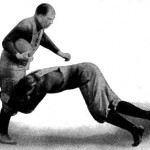Replay: Donkeys sleeping in the bathtub
Four years ago, I published a post called “Donkeys sleeping in the bathtub.” The post was inspired a commercial that was airing around the time that I wrote the post. The commercial was about crazy laws that were on the books in certain states. It made me think about how there are certain traditions among the church, and how those traditions started, and how those traditions just seem to hang around… whether they are helpful or not.
——————————————–
Donkeys sleeping in the bathtub
According to a commercial on the radio, there is a law in Arizona that makes it illegal to allow a donkey to sleep in your bathtub.
Also, apparently, in Minnesota, there is a law that makes it illegal to cross the Minnesota state line with a duck on your head.
While these laws seem funny and even ridiculous to us, there was probably a good reason for passing the laws in the first place. If we traced the history of these laws, we would probably understand why the laws are on the book. However, while the history may clear things up for us, history will not make the laws make sense today.
Why? Well, most people don’t own donkeys today, much less allow them to sleep in their bathtubs. And, I don’t think I’ve ever seen someone with a duck on their head.
But, of course, once a law is on the books, it is difficult to remove it.
The same thing happens with our traditions and practices and rules in the church. For very good reasons, the church begins doing things and begins doing them in certain ways. Eventually, the reasons disappear, but the practices continue.
Eventually, if we’re not careful, those practices become more important to us than who we are as the family of God in Christ. The way we do things becomes more important than the reason we started doing them in the first place. We become defined by our methods instead of being defined by our relationship with God and with one another.
I think we see this today in many aspects of our lives together as the church. We don’t know why we do the things we do or why we act the way we act or why we’re structured the way we’re structured, but someone must have had a good reason to start doing it this way, and we’re familiar and comfortable with these things, so we just let them continue.
But, the silly laws I mentioned at the beginning of this post – laws against donkeys sleeping in bathtubs and wearing a duck on your head – generally don’t affect people today. For many people, their lives will not be changed if the laws remain or are repealed.
But, it is completely different for the church. The things that we do day after day, week after week, year after year, simply because that’s the ways it’s been done, or the ways we’ve been taught, or the ways that have worked before, or even the ways that seem rational and logical… these things affect us as followers of Jesus Christ. They affect our relationship with God and our relationships with one another.
The things that we do or don’t do, the way that we’re structured or not structured, the way that we speak or don’t speak, all of these things work to either build us up toward maturity in Christ, or they hinder our development in Christ.
Laws against donkeys sleeping in the bathtub seem funny and ridiculous to us. But, I wonder if the way we treat one another as the church, the way we set up hierarchies among believers, the way we abandon our responsibilities toward one another and pay others to carry out our responsibilities… I wonder if these things seem funny to God.
So, why does the church have a love problem?
So, in a previous post, I began “Tackling the Love Problem.” Then I wrote about “The incredible primacy of love… It’s more important than we think.” Next, I said that “We have everything we need to love others.” Finally, I wrote that “Love is easily recognized as love.”
What is the “love problem”? It’s quite simple actually. Jesus said all people would know us by our love. But, when you ask people what they think about Christians, love is far, far down the list… if it even makes the list. We have a love problem.
Now, let’s be honest with ourselves and with one another. We don’t love because we’re disobedient to the Spirit. It really is that plain and simple. The Spirit indwells all of God’s children. The Spirit produces love within us and leads us to love others. But, we don’t do it because we choose not to yield to the Spirit and instead yield to our own desires. (This is described many ways in Scripture, such as presenting ourselves as slaves to sin even though we have already been set free from slavery to sin – Romans 6.)
But, disobedience is not the “love problem.”
Here’s the thing. We should expect new, immature believers to have a harder time love than older, more mature believers. We should see an increase in love as people mature in Christ. Thus, even though many Christians would struggle with love, we should still see a general tendency toward loving others among the church… and that tendency should increase.
That’s not what we see… and while we may want to make excuses, it’s certainly not what the world sees. And, remember, Jesus said “they” would know us by our love.
The “love problem” is a result of lack of maturity in Christ. I think this lack of maturity affects our love (and our demonstration of love) primarily because love cannot be taught through speeches, sermons, books, articles, seminars, conferences, and, yes, even blog posts. As awesome as blog posts are, you will never learn how to love someone by reading one of my incredible posts. You will never be challenged to show love to that difficult neighbor (who you’d rather ignore or perhaps curse) by reading my eloquent prose.
For that kind of “teaching,” we need life on life interaction… the kind of discipleship that we find in Scripture… where (as Paul said) followers of Jesus shared not only the good news but their very lives.
No, we’ll never learn to love by listening to a sermon or reading a book, but we will learn to love to observing the life of a brother or sister in Christ as they learn to love. We will learn to love by being helped to show love to a difficult neighbor by another follower of Christ who has “been there.”
This is why the church has a “love problem.” It’s tied back to our relationships (or lack of relationships) and fellowship (or lack of fellowship) and overemphasis on information transfer.
Because, while the church as a whole can probably tell you the different Greek terms for “love,” and exegete various passages on “love,” and quote several verses about “love”… how many actually know one another well enough to help each other love?
It’s messy work.
The way we typically do things now is much more efficient and “excellent.” But, it’s also producing a “love problem.”
So, what do we do now? What do you do now?
———————————————
Series on the “Love Problem”
Love is easily recognized as love
So, in a previous post, I began “Tackling the Love Problem.” Then I wrote about “The incredible primacy of love… It’s more important than we think.” Next, I said that “We have everything we need to love others.”
What is the “love problem”? It’s quite simple actually. Jesus said all people would know us by our love. But, when you ask people what they think about Christians, love is far, far down the list… if it even makes the list. We have a love problem.
There are a couple of things that I always hear when I talk about love. 1) Love is a heart issue, and it’s not about what we do or don’t do. 2) We are loving people, but they just don’t understand or perceive or recognize our love.
To begin with, I agree completely that love is a heart issue, but I disagree that love is not about what we do or what we don’t do. I think it’s both – it is a heart issue and also a practical issue.
But, for the most part, I want to focus on the second response: “We are loving people, but they just don’t understand or perceive or recognize our love.” I think, as we consider this statement, you’ll see why I responded as I did above to the first statement (i.e., that love is both a heart issue and a practical issue).
In the Gospel of Luke, when Jesus said that the greatest commandment was to love God and love your neighbor, someone immediately asked him, “Well who is my neighbor?” As an answer, Jesus provided the story that we now call “The Good Samaritan”:
Jesus replied, “A man was going down from Jerusalem to Jericho, and he fell among robbers, who stripped him and beat him and departed, leaving him half dead. Now by chance a priest was going down that road, and when he saw him he passed by on the other side. So likewise a Levite, when he came to the place and saw him, passed by on the other side. But a Samaritan, as he journeyed, came to where he was, and when he saw him, he had compassion. He went to him and bound up his wounds, pouring on oil and wine. Then he set him on his own animal and brought him to an inn and took care of him. And the next day he took out two denarii and gave them to the innkeeper, saying, ‘Take care of him, and whatever more you spend, I will repay you when I come back.’ Which of these three, do you think, proved to be a neighbor to the man who fell among the robbers?” He said, “The one who showed him mercy.” And Jesus said to him, “You go, and do likewise.” (Luke 10:30-37 ESV)
If I can, I’d like to point out a few things from this story:
1) Although I’ve heard it brought out many times in sermons and read about it in articles and books, Jesus does not mention the heart or motivation for the priest and the Levite. He only talks about their actions (or lack of actions).
2) In the same way, Jesus does not tell us how the Samaritan feels about God or the beaten man. He only tells us about the Samaritan’s actions.
3) When Jesus asked the lawyer, “Which of these three proved to be a neighbor (i.e., loved the other person)?”, the lawyer did not ask about heart or motivation. He only responded based on the actions of the priest, Levite, and Samaritan.
4) The lawyer quickly and easily recognized that the Samaritan was the good neighbor by his actions.
Is heart and motivation important? YES! Absolutely. But when Jesus said, “They will know you by your love,” he was talking about our actions. When Jesus said, “Love your neighbor,” he was talking about our actions.
And, if this story is a good indication, then those actions will be easily recognized by others as actions motivated by love.
———————————————
Series on the “Love Problem”
We have everything we need to love others
So, in a previous post, I began “Tackling the Love Problem.” Then I wrote about “The incredible primacy of love… It’s more important than we think.”
What is the “love problem”? It’s quite simple actually. Jesus said all people would know us by our love. But, when you ask people what they think about Christians, love is far, far down the list… if it even makes the list. We have a love problem.
Obviously, the “love problem” is not something that can actually be “tackled” in a few blog posts. This series will barely scratch the surface. In fact, I don’t think writing or speaking about love can ever do anything more than scratch the surface, and that’s part of the problem. (But, I’ll get to that later.)
As we think about this love problem, we need to recognize and accept that we already have everything that we need to love others. There’s no reason to wait for God to give us anything more before we love others. We don’t even have to wait for God to tell us to love someone; he’s already told us over and over to love them.
Let’s start with that last point. “Love one another”… “love your neighbors”… “love you enemies”… Together, these are probably the most ubiquitous commands found in the New Testament. We find them on the lips of Jesus in the Gospel. Paul writes these instructions in several of his letters. James includes it as the “royal law.” Of course, John focuses on love in his letters. Peter even includes the command to love five times in his short letter (1 Peter).
So, the command to love is common among Christians. It’s a command found throughout the New Testament Scriptures, and definitely applies to us as well. As a command, we must understand that it requires response on our part. In other words, there’s something we must do. (But, again, I’ll get to that later.)
Note that these commands are given to all recipients of these various books and letters. They are not just given to the more mature believers. Even the youngest, newest, least mature follower of Jesus Christ is command to love.
Why can the authors of the New Testament (and any of us, actually) command/instruct other believers – any other believer – to love others? Because anyone who is a follower of Jesus Christ – who is a child of God – has everything needed to respond to that command. Why? Because the only thing needed is the Holy Spirit.
The Holy Spirit provides everything needed for the child of God to love others. Everything. We don’t need more of anything. We’re no lacking in anything. We have all of the Holy Spirit, and he is all that we need.
So, why is there still a “love problem”? Why do we not love?
———————————————
Series on the “Love Problem”
The incredible primacy of love… It’s more important than we think.
So, in yesterday’s post, I began “Tackling the Love Problem.” What is the “love problem”? It’s quite simple actually. Jesus said all people would know us by our love. But, when you ask people what they think about Christians, love is far, far down the list… if it even makes the list. We have a love problem.
Obviously, the “love problem” is not something that can actually be “tackled” in a few blog posts. This series will barely scratch the surface. In fact, I don’t think writing or speaking about love can ever do anything more than scratch the surface, and that’s part of the problem. (But, I’ll get to that later.)
Before we begin to tackle the love problem though, we should understand just how important love is for the person following Jesus Christ – that is, the person who is God’s child and is indwelled by the Holy Spirit. We know that Jesus said the greatest commandment (a two-fold commandment actually) is love God and love your neighbor. (Matthew 22:36-39) We also know that Jesus instructed his followers to love one another in the same way that he loved them. (John 15:12) In fact, Jesus’ followers often combined the “two-fold” commandment of love God/love others into one commandment: “love one another.” (For example, see James 2:8.) Beyond loving other Christians (i.e., “one another”), this kind of love is also to be given to “enemies.” (Matthew 5:43-44)
But, even given all of this, I still don’t think we really understand how important love is. Let’s think about 1 Corinthians 13 (often called the “love chapter”). But, instead of skipping to verse 4 (you know, “Love is patient. Love is kind.”), I’d like to focus on the first 3 verses of the chapter:
If I speak in the tongues of men and of angels, but have not love, I am a noisy gong or a clanging cymbal. And if I have prophetic powers, and understand all mysteries and all knowledge, and if I have all faith, so as to remove mountains, but have not love, I am nothing. If I give away all I have, and if I deliver up my body to be burned, but have not love, I gain nothing. (1 Corinthians 13:1-3 ESV)
For many of us, this passage is so familiar we can quote it without even thinking about it… and that may be part of the problem. Let me break it down a little…
If you do not have love, then you have nothing.
It doesn’t matter that you can speak any human language eloquently and truthfully.
It doesn’t matter that you can speak spiritually languages.
It doesn’t matter that you can correctly prophecy or proclaim the word of God.
It doesn’t matter that you understand everything about God correctly – even the difficult stuff.
It doesn’t matter that you trust God completely in everything.
It doesn’t matter that you give away everything and live in poverty.
It doesn’t matter that you even sacrifice your own life.If you do not have love, then you have nothing.
Remember, this passage about love is right in the middle of Paul’s longest discussion about spiritual gifts. There is no indication anywhere in this passage that someone is wrong about their spiritual gifting of tongues, prophecy, faith, etc. But, without love, that spiritual gift is nothing.
There is nothing wrong with tongues or prophecy or knowledge or wisdom or faith or giving… unless there is no love. In that case (if there is no love), then there is nothing RIGHT about them.
———————————————
Series on the “Love Problem”
Tackling the Love Problem
We have a problem, and some of us are still in denial.
In specific, we have a love problem. We don’t love. At least, we don’t love the way that Jesus said his disciples would love.
We don’t love one another – except for those who are just like us. And, we certainly don’t love our “enemies.” And, yet, as I said above, his true disciples would be known by their love.
If you ask people what they think of Christians in general, I’d be surprised if 10% of them mentioned our love. Why? Because we don’t demonstrate love toward them very often – if at all. Oh, we demonstrate many things toward them… but not love.
Lately, whenever I’ve talked about this “love problem,” I’m often met with reasons, excuses, justifications, conditions, and finger pointing. This has happened several times. I’ve rarely been met with this answer: “You’re right… we’re not very loving.”
This is a problem. It’s a problem we must own up to. It’s a problem we must address.
We can study and write and exegete and meet and confer and teach and preach and blog and argue… but if we don’t have love… we have nothing. (I’m glad that I didn’t write that first.)
So, for the next few days, I’m going to spend some time thinking (out loud… or in blog posts) about this love problem. But, my goal is for it to go much farther than writing these blog posts. My desire is to see my life demonstrate God’s love more and more and more and more.
But, to start this blog series, I’d love to hear your thoughts on these questions:
1) Do you think we have a love problem?
2) Why do you think love has taken second (or lower) place among Christians?
3) What’s the answer to this problem?
———————————————
Series on the “Love Problem”
Scripture… As We Live It #260
This is the 260th passage in “Scripture… As We Live It.”
Do you not know that if you present yourselves to anyone as obedient slaves, you are slaves of the one whom you obey, either of sin, which leads to death, or of obedience, which leads to righteousness? Wait a minute… what am I saying? You’re Christians so you can’t be slaves to sin. Just ignore that part. (Romans 6:16 re-mix)
(Please read the first post for an explanation of this series.)
Replay: Spiritually Gifted Women
Three years ago, I wrote a post called “Spiritually Gifted Women.” The post was part of a series of posts that I wrote on women and service (ministry) from the perspective of Scripture. Unfortunately, there’s alot of organizational and hierarchical baggage attached to some terms in Scripture, terms such as “minister” or “ministry” or “pastor” or “preacher” etc. Much of that baggage surrounds gender roles and various forms of service. I think it’s time to look again at how those terms are used in Scripture.
——————————-
Spiritually Gifted Women
In a previous post – “Spiritual Gifts and Women” – I started writing about “women in ministry,” or, perhaps a better way to phrase it, “women serving others.” I pointed out that the authors of Scripture do not make a gender distinction when listing spiritual gifts. Neither Peter nor Paul lists certain gifts for men and other gifts for women. Also, they do not specify that only men have certain gifts.
So, from this conclusion, it seems that women could be gifted by the Holy Spirit with any of the gifts listed, that is, apostleship, prophecy, evangelism, teaching, shepherding, leading, serving, helping, giving, etc. Based on these gifts, and the exercise of these gifts, it would be proper to call a woman an apostle, a prophet, an evangelist, a teacher, a shepherd, a leader, a servant, a helper, a giver, etc.
Again, according to Scripture, God gives gifts to his children through the Holy Spirit for the purpose of serving others. (see Romans 12:6, 1 Corinthians 12:7, 1 Peter 4:10) We see this specifically of gifts like prophecy, which is intended to be used to edify others, not just the one with the gift of prophecy:
On the other hand, the one who prophesies speaks to people for their upbuilding and encouragement and consolation. The one who speaks in a tongue builds up himself, but the one who prophesies builds up the church. (1 Corinthians 14:3-4 ESV)
Thus, the woman who is a prophet should speak to others for the purpose of building them up.
Unfortunately, spiritual gifts are often associated with “offices” or “positions” in the church. Thus, because Acts 20:28 and 1 Peter 5:2 speak of elders as “shepherding,” we often associate the spiritual gift of “shepherding” with being an elder. In fact, in many contexts, elders are called “pastors” because of this associations.
Similarly, since some elders “lead” (1 Timothy 5:17), we often associate “leading” with being an elder (or other “office” or “position”, whatever we call it). However, it seems from Scripture that others lead, even if they don’t haven’t been appointed as an elder or even if they don’t have a specific “position.” (see 1 Thessalonians 5:12-13, Romans 12:8, Hebrews 13:7, 17)
The same could be said for teaching. In 1 Timothy 3:2 and 1 Timothy 5:17, Paul says that elders should be able to teach, and that we should honor those who work hard at teaching. But, these passages do not indicate that only elders teach. In fact, there are several passages that place teaching in the context of the entire body of Christ. (see Matthew 28:18-20, Colossians 3:16)
Thus, the stigma against women having certain spiritual gifts (especially apostleship, prophecy, teaching, evangelism, shepherding, and leading) or being called by labels related to those spiritual gifts (apostle, prophet, teacher, evangelist, shepherd, and leader) comes more from the association of those spiritual gifts (and titles) to certain “offices” or “positions” in the church, not from the spiritual gifts themselves.
Now, once again, this does not mean that women (or men, for that matter) should exercise their spiritual gifts in any context. So, for the next few posts about “women in ministry (service)”, I’ll look at some of those contexts.
Disconnected Church Connections – Of the Lack of Relationships Among the Church
In a previous post, I explained that I was starting a new series on the topic of “disconnected connections.” (See my post “Disconnected Church Connections – Introduction.”) I’ve already discussed the “disconnected connections” that we make by reading books, articles, essays, and, yes, even blog posts, the “disconnected connections” that we make online, and the “disconnected connections” we have with various types of speakers. (See my posts “Disconnected Church Connections – Of Authors and Similar Personalities,” “Disconnected Church Connections – Of Online Friends and Followers,” and “Disconnected Church Connections – Of Speakers at Seminars, Conferences, and More” respectively.)
What do I mean by “disconnected connections”? We can often feel “connected” to other Christians without face-to-face interactions. We often feel like we “know” people who we have never met. (As I explained in the introduction, I am not condemning disconnected connections. Instead, I’m cautioning that these types of relationships should be supplemental (and secondary) to real life, face-to-face interactions.
In this conclusion to my series on “disconnected connections,” I’d like us to think about one question: Why are people drawn to “disconnected connections” among the church? So far, I’ve talked about various types of relationships that are often seen as very important among the church, and yet these relationships do not provide the face-to-face, intimate connections and interactions that we need for growth and maturity in Jesus Christ.
I think the answer is quite simple: Among the church today, those kinds of real, face-to-face, intimate relationships are extremely rare or, in some cases, nonexistent.
For too long, the church has emphasized activities and programs that hinder those kinds of relationships. Yes, Christians have always SAID that relationship was important. But, when the rubber hits the road, relationships were put on a back burner, at best. The church focused on information, organization, and attendance. Through all of these, Christians learned that relationships were not really important.
In past generations, community and relationship developed naturally, primarily because people tended to stay in one location their whole life. However, when that change, community and relationship became less natural. So, it was easy for Christians to set aside important relationships just as others in our culture were doing.
Instead of the important face-to-face interactions that God uses to help us grow and mature in Christ (expressed beautifully in Scripture through the many “one another” instructions), the church turned to “disconnected connections” and encouraged others (intentionally or unintentionally) to turn to “disconnected connections” as well.
What’s the answer? We cannot continue to emphasize the “disconnected connections” and expect people to build intimate relationships as well. Instead, we must emphasize those real, live, face-to-face kind of interactions that actually help people grow and mature in Jesus Christ. Instead of giving special time to “disconnected connections,” we must set those aside and give that time to building relationships – showing that these interactions (“one anothers”) are truly important to us and no longer only giving “lip service” to the importance of relationships.
Finally, we must model these kinds of discipling relationships, being willing to invite people into our lives, being willing to listen and learn from them, being willing to wait for God to work through the often slow and messy process of community.
Our relationships with one another in Jesus Christ are extremely important, and we must be willing to show people that they are important.
—————————————
Series on “Disconnected Church Connections”
Disconnected Church Connections – Of Speakers at Seminars, Conferences, and More
In a previous post, I explained that I was starting a new series on the topic of “disconnected connections.” (See my post “Disconnected Church Connections – Introduction.”) I’ve already discussed the “disconnected connections” that we make by reading books, articles, essays, and, yes, even blog posts and the “disconnected connections” that make online. (See my posts “Disconnected Church Connections – Of Authors and Similar Personalities” and “Disconnected Church Connections – Of Online Friends and Followers” respectively.)
What do I mean by “disconnected connections”? We can often feel “connected” to other Christians without face-to-face interactions. We often feel like we “know” people who we have never met. (As I explained in the introduction, I am not condemning disconnected connections. Instead, I’m cautioning that these types of relationships should be supplemental (and secondary) to real life, face-to-face interactions.
There’s another common source of “disconnected connections” among the church: speakers. Conference speakers. Seminar speakers. TV and radio personalities. People attend a conference or listen to a radio or TV broadcast – perhaps several times – and begin to think that they know the speaker. They don’t. They can’t. The speakers can provide information, but that’s all. And, as I’ve stated before, information is not the basis of growth and maturity in Jesus Christ.
Many people would agree with what I just said, and would caution against the overemphasis on conference, seminar, radio, and TV personalities. But, there’s another group of speakers who we need to think about as well.
Preachers.
Now, don’t misunderstand me… there are some preachers among traditional churches who share their lives with other people regularly – day in and day out. But, I think these are few and far between – not necessarily because of the preachers themselves, but because of the nature of the system they are part of. (I’m using the term “preacher” to refer to a person who speaks regularly – usually weekly at least – to a church audience.)
A few years ago, a young man who became a very close friend of mine explained his own experience with this. He had been part of a very popular church organization in our area. This church is known for some very good things, including their preacher. One day, my friend told me, this preacher was talking about loving others. He realized that he had no idea what the preacher meant by “love one another,” because he had never seen the preacher living it out. There was no “teaching through life” to accompany the “teaching by words.” (By the way, I’m sure this preacher shares his life with others, but he cannot share his life with everyone he speaks to every week.)
So, among the church, we often have “disconnected connections” with preachers, pastors, elders, whatever we call them. Then, we look to them as our primary leaders and teachers among the church. This is a problem. This is not the way that God works among the church. Instead, he works through the real life, face-to-face interactions between his children.
Of all of these “disconnected connections,” the shallow (sometimes nonexistent) relationship that we have with people who claim to be our leaders (and we accept their claim all too easily) is perhaps the most harmful to the health of the church.
—————————————










